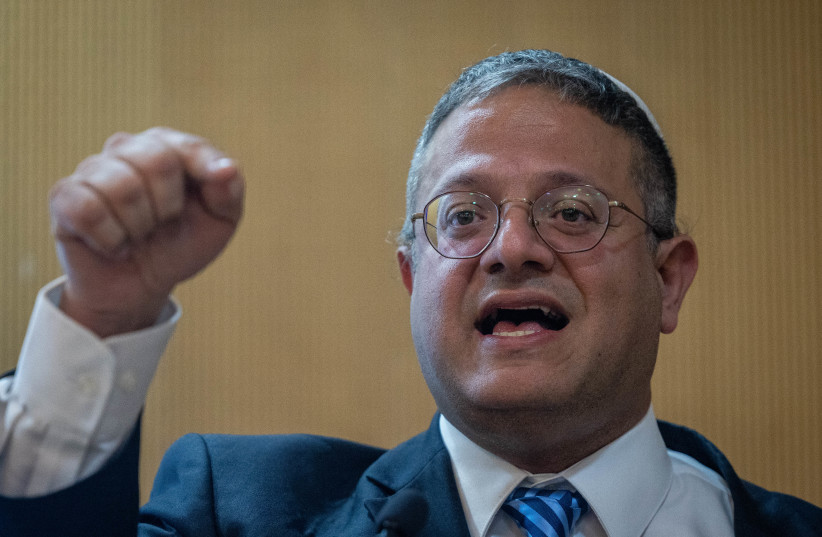The 2005 Disengagement from the Gaza Strip, in which 21 Israeli settlements were evacuated and destroyed and nearly 9,000 Israelis were forced to find new homes, was a national trauma that bitterly divided the country.
Withdrawing Israel’s presence from Gaza was seen by many shapers of Israeli policy as a positive and necessary move to consolidate the country’s security needs and to help pave the way for Palestinian self-rule in the enclave.
“Israel will strengthen its control over those same areas in the Land of Israel, which will constitute an inseparable part of the State of Israel in any future agreement,” then-prime minister Ariel Sharon said in a 2003 speech at the Herzliya Conference.
As we now know, when Hamas seized Gaza in 2007, hopes for the enclave being part of an agreed-upon Palestinian state in a negotiated deal, went up in rocket smoke.
Hopes for using Gaza in negotiations for Palestinian state died in 2007
Furthermore, in light of the events of October 7 and the ensuing Gaza war, the likelihood of a negotiated settlement that results in a two-state solution involving Gaza is more remote than ever.

Despite the war showing no indications of ending soon, however, the question of what happens to Gaza on the “day after” is a major question that concerns not only the leadership in Jerusalem and Ramallah but throughout the Arab world, Washington, and Europe.
How will Gaza recover, and how will its two million inhabitants survive the devastation of war and 17 years of neglect and abuse at the hands of Hamas? Most of the proposals have been met with opposition by some sides, whether they be Israel running the Strip, the Palestinian Authority retaking control, a confederation of Arab countries, or a UN-run multinational administration.
Maybe none of those options will work. But what’s clear to us is that this isn’t the time to discuss Israeli resettlement of Gaza. That’s why Sunday night’s gathering in Jerusalem attended by some 3,000 supporters, including 12 cabinet ministers and 15 MKs, was disturbing.
The alarmist speeches by National Security Minister Itamar Ben-Gvir and Shomron Regional Council head Yossi Dagan – in which the notion that only establishing settlements in Gaza will prevent a Holocaust – were accompanied by scenes of jubilant dancing in celebration at the messianic opportunity they think awaits the Jewish people by returning to Gaza.
After Oct 7- alarmists claim that return to Gaza will prevent Holocaust
We find this disturbing because soldiers are being killed and more than 130 hostages are still in Hamas’s hands.
Minister-without-portfolio Gadi Eisenkot said it best on Monday when he stated that the gathering “divides Israeli society and increases the existing lack of trust in the government and its representatives, while IDF troops are battling shoulder-to-shoulder in a righteous war.”
Izhar Lifshitz – the son of Oded Lifshitz, who is being held captive in Gaza – on Monday said the idea of exploiting the void in Gaza by bringing Israelis to live there is an affront to those living in a nightmare.
“Is now the right time? When no families have returned to their homes in the Gaza border area, when soldiers are fighting together? We feel like we were stabbed,” he told the Knesset Aliyah and Absorption Committee.
Beyond the internal divisions caused by the ministers’ participation in the conference, they also created a huge problem for Israel internationally. We have harped from the outset that the war is a defensive campaign to stop
Hamas carrying out another October 7 attack, and that Israel has no intentions of reoccupying parts of Gaza, but when 12 ministers at a conference utter blustery statements like those of Ben-Gvir, it severely damages Israel’s credibility. We can no longer say the resettlement of Gaza is a fringe idea that has no teeth or staying power.
Rather than attend rallies that oppose their own government’s policy, the ministers in question should state their opinions in appropriate forums and then submit to government policy. Ben-Gvir and others don’t realize they’re no longer external rabble-rousers. They are now in positions of authority and responsibility.
You would think that we would have begun to act like mature adults. Unfortunately, this isn’t the case.
For the good of the country, its ties with the US, and its future unity, Prime Minister Benjamin Netanyahu must rein in these ministers and face the challenges of Gaza’s future with reasoned logic and not knee-jerk emotions that bring harm to the country.
